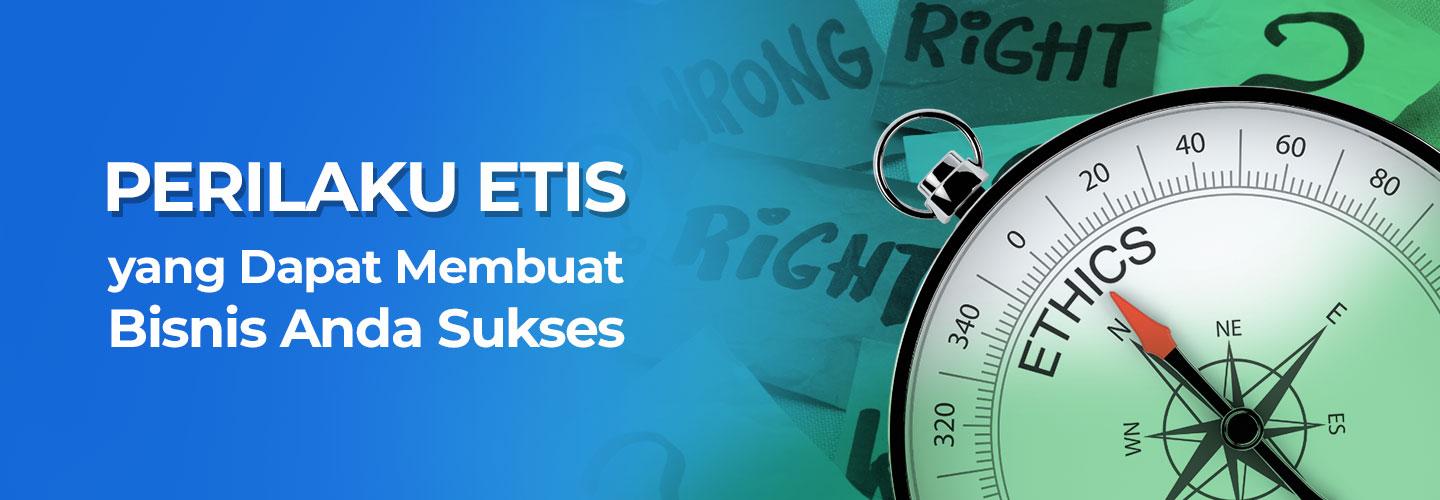ESG Center
Focus on driving sustainable business, practices through expert consulting, training, advising, assistance, and innovative solutions in Environment, Social, and Governance (ESG).

When running a business or already having a position in a company, regulations and ethics become incentives to be more disciplined. Business ethics can shape the values and behavior of all elements within an organization, from staff, managers, to leadership.
Business ethics can also create a healthy atmosphere and relationships for fellow colleagues. However, not all managers and employees really understand what proper business ethics are like. To better understand, below is an explanation of the definition of ethical behavior and examples of it when applied in companies.
Basically, ethical behavior in business refers to actions, decisions that adhere to values that are considered appropriate in a business context. It covers various aspects, including the way a company interacts with customers, employees, competitors, stakeholders, and the general public.
In a business environment, ethical behavior applies to all stakeholders involved in all business activities. They must demonstrate honest and fair behavior in their relationships with colleagues and clients.
Displaying good ethical behavior can improve company morale and client relationships. From the employee side, they also want to work for a company that treats all its people and clients fairly, and has good and ethical business practices.
At its core, ethical behavior is working according to company standards that are fair and transparent. Not just obeying the rules but also doing your job well.
To understand how important ethical behavior is, there are examples of unethical behavior that can impact a company. Imagine there is a company that only employs family members with inadequate capabilities.
It's not illegal, but these actions can have a negative impact on the value, success, and even image of the company. Especially if the work of a family member who does not have that capability is done by another employee so that person does not do anything.
On the other hand, managers who have ethical behavior will act fairly in all situations. Then slowly, employees can assess and believe that the team under your leadership can work better.
By being ethical, you as a leader can create a healthy environment and encourage good attitudes for employees.
Maybe you feel confused in understanding this ethical behavior. Generally, ethical behavior includes honesty, integrity, fairness and various other positive traits.
Additionally, those who consider the interests of others when making decisions demonstrate ethical behavior. Here is another common example of ethical behavior.
People who behave ethically will always respect each other, even for things or opinions they disagree with.
This sense of respect for others extends to all groups, including managers and staff, colleagues and clients. When someone can respect other people, there is no need to reject criticism or input, they are able to communicate more openly, and they can accept other people's points of view.
All successful businesses or companies can communicate effectively. When the communication system is open to each other and employees are willing to talk, misunderstandings can be avoided.
You can chat with employees regularly, for example once a month to catch up on work. Through this session, make employees comfortable and not judging so that they can talk about their complaints.
Mistakes and misunderstandings are bound to happen in any work environment. However, when this happens, employees need to be held accountable for their actions.
When they take responsibility for what happened and are proactive in fixing it, that is a form of ethical behavior. The existence of accountability standards in an organization forces the people in it to hold themselves and their colleagues to these standards of responsibility.
Company ethics may be invisible, intangible, and may sometimes be unnoticed by others. However, this ethic has a clear relationship with the performance of all parties. Through the Strategic Business Analysis program, the business environment (internal and external) has important implications for company strategy.
INSIGHT AND KNOWLEDGE
RECOMMENDATION ARTICLES